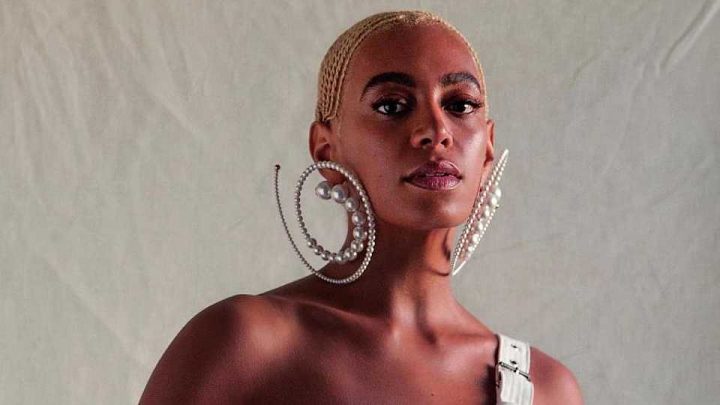Matthew Knowles, aka Beyoncé’s dad recently stirred up a whole hornet’s nest when he stated that his talented daughter would not have achieved the level of success she has if she’d been darker-skinned. Colourism is real, ladies. Making her case is guest contributor, Lawrencia Amfo-Asiedu, who takes us on a journey to uncover the ‘perception of Black beauty in society and the beauty industry’ and what’s changed.. or not!
In the early days of television, the media seemed to have only one type of ‘acceptable’ beauty, fair skinned with Eurocentric features. Black women, particularly those with darker skinned complexions were shunned for not depicting or reflecting the ‘ideal beauty’. Racism and lack of civil rights notwithstanding, things began to change.
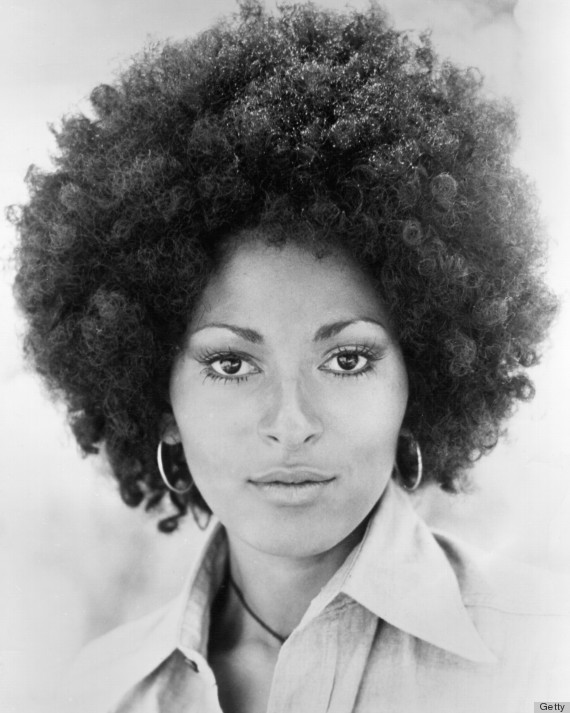
Pre-60s adverts encouraged Black viewers to aspire to; ‘lovelier hair, longer hair, straighter hair’, with the deeper message that: ‘straighter hair’ equalled beauty, and while the thought of having a glorious ‘fro of kinky, coily hair was horrifying back then, the 70s came, and this view changed too, for a while.
How much have things really changed though? Only a few months ago, we witnessed both singer Solange and actress Lupita Nyong’o having to defend their right to wear their hair the way they choose without it being digitally altered to fit a more Eurocentric or ‘acceptable’ image in mainstream magazines. The publications apologised, but the damage was already done. How do these actions affect the psyche of the Black woman? Lupita gives us a clue. She once commented: “I grew up thinking light skin and straight hair were the standards of beauty, but I now embrace dark skin and kinky coily hair.”
However, there has been some positive changes within the sisterhood with the recent euphoria of ‘Melanin fever’ where darker skin is viewed as desirable and individuals are proud to flaunt the darkness of their skin colour. Hashtags on social media such as #Melaninpopping or #MyMelaninRocks. The Afrocentric visuals and unapologetic pro-Black imagery of Marvel’s Black Panther served to fan the flames of this new acceptance.
It’s hardly surprising that it’s taken this long for Black beauties to finally come into their own. The struggle was real for Black and Asian women when it came to makeup that catered to them. For years, Mac Cosmetics was the only mainstream front runner for women with darker skin. Why was it so hard for the mainstream beauty industry to realise that women of colour come in different hues? Thank goodness for makeup brands like Iman and Black up.
The hardship extended to catwalk and supermodels, like Leomie Anderson, who criticised makeup artists for applying the wrong shade of makeup or having a lack of knowledge when it came to darker skin tones. Model Jourdan Dunn once said in a Vogue interview; “To be honest the choices can still be limited for darker skin, people don’t understand. They’ll offer darker shades, but they don’t understand the different tones in darker skin, whether they will be too ashy or too orange. It would be great if makeup artists were better educated in how to do makeup on darker skin.”
A definite shift in the narrative came when Lancôme introduced shades for darker skinned women called ‘Teinte Idole Ultra 24h’ with Lupita as its ambassador. This was seen as progress for women of colour as the foundation range complimented different hues. We started to see optimism in the beauty industry for women of colour as it appears the ‘bosses upstairs’ were starting to realize that we were also a target audience too.
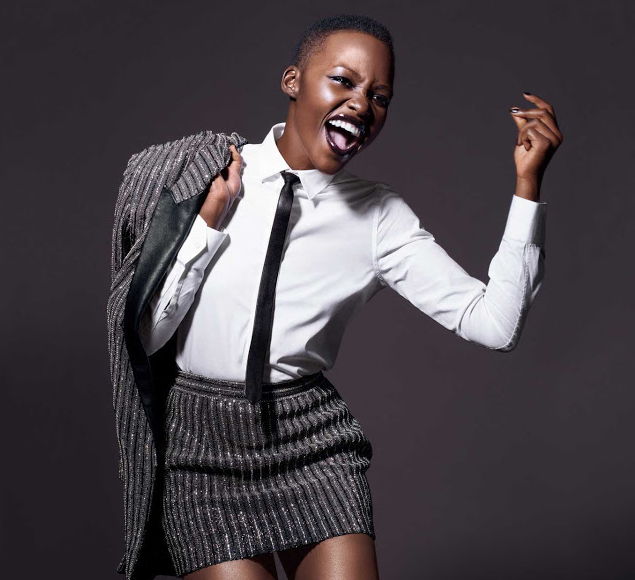
The biggest disruption in the makeup world though was by our girl Riri. Rihanna’s Fenty beauty was launched with great fan fair last Autumn. The makeup line was a master class, showing the industry how to cater for all women. The buzz around the line was the fact that there was something for everyone, with well thought out 40 shades that saw YouTube influencers and regular woman alike gushing that finally, a brand that really understands the different hues and undertones.
The world of fashion also saw a seismic shift last year when Edward Enninful became the first Black male editor of British Vogue magazine. He has made it clear that his Vogue will be inclusive and is introducing diversity to the iconic fashion magazine. Mr Enninful is determined to show a true reflection of the beauty industry in the UK. “My Vogue is about being inclusive, it is about diversity, showing different women, different body shapes, different races and class.”
British Ghanaian model Adwoa Aboah was the cover girl on his first edition.
But don’t just take my word on this. Are perceptions of Black beauty really changing? Here are the views of three Black women who discuss the challenges they have encountered regarding their skin tone when it comes to make up and their thoughts on the different standards of beauty.
Nicole Biredu, Aspiring model
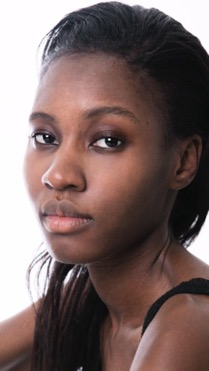
Do you think the standard of beauty in the media has changed or do you think we still have a long way to go?
I feel that it has somewhat changed, the media is trying to embrace people of all different colour, shape and sizes. Even so, I believe that it is only to a certain degree. There is still quite a way to go.
How would you like to see Black beauty depicted in the media in the next couple of years?
Simply for all skin colours and undertones to be embraced equally, whether it be in magazine spreads, on the runway or commercially.
Sarah Owusu, Artist
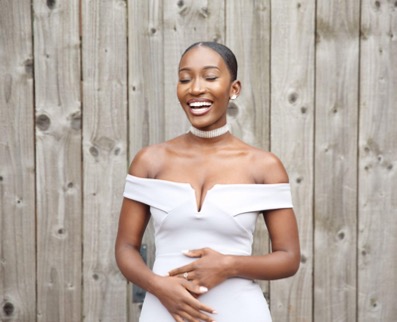
Growing up, did you encounter any challenges over your complexion and how did you overcome it?
I didn’t encounter any challenges with my skin complexion until I started a new primary school after coming back from Ghana after a few years of schooling there. Some of the children would sometimes refer to me as “blick” and what’s saddening about this is that the few children who were saying this were black children themselves. Fortunately, although hurtful, it wasn’t something which bothered me much.
Do you think the standard of beauty in the media has changed or do you think we still have a long way to go?
The standard of beauty has slightly improved, but I definitely would not say it has truly changed. I think the only reason why the media is more inclusive of more skin tones now is to meet their “diversity” targets but not because they believe that a black woman is truly beautiful. Often also, you find that a mixed raced girl would be used to sit in for all black women in some commercials when that isn’t the only representation of what a full black woman looks like. I feel there should be a fair representation of every type of woman in the world from the fairest white to the deepest shade of black. Then, we could say that the media has truly changed, when every woman can watch most commercials and see herself in the models.
Pariyetta Alford, Aspiring singer /songwriter
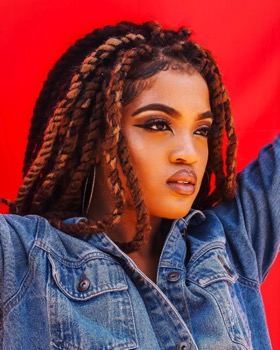
How would you like to see Black beauty depicted in the media?
There should not just be five or eight colours of foundation because every woman has unique skin types. It’ll be great to see that in a couple years from now Black beauty continues to expand and go above and beyond than what it is currently available. Being Ghanaian and also being around A LOT of other cultures, I’ve seen women try to change their complexion to become lighter. It is important that we educate ourselves to know that skin bleaching can cause serious damages and can lead to skin cancer and other diseases.
So, there you have it. Things are slowly changing for the better, but nowhere near fast enough. We know that women are beautiful, regardless, or because of the different shades of their complexion. It’s time Society realizes this too.
This article was edited from an original post by Lawrencia Amfo-Asiedu.

